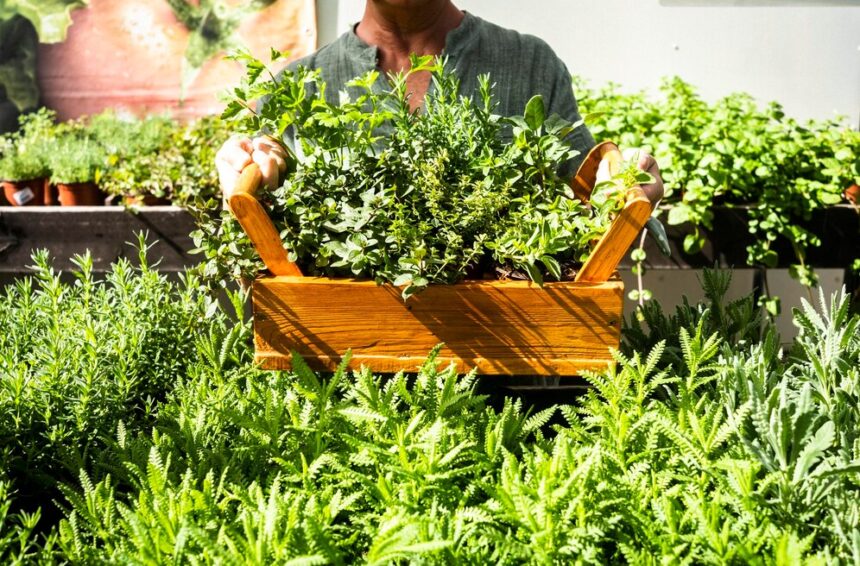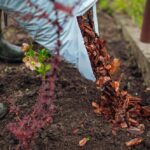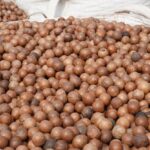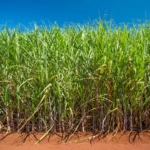In South Africa’s competitive agricultural sector, many young entrepreneurs are making their mark by embracing innovative farming practices. One such success story is that of a young farmer who is making over R1 million annually by cultivating herbs. This inspiring journey demonstrates how modern farming methods, coupled with a passion for agriculture, can turn a small-scale venture into a thriving business.
The Rise of Herb Farming
Herb farming has gained popularity in South Africa, particularly with the increasing demand for fresh, organic herbs in both the culinary and medicinal markets. The versatility of herbs—ranging from traditional culinary herbs like basil, mint, and thyme to medicinal varieties like chamomile and lavender—has made them a lucrative crop for small-scale farmers.
For one young farmer, this growing trend led to a profitable venture. He started his herb farm in his early 20s with a simple goal: to create a sustainable business that could thrive in South Africa’s unique agricultural landscape. Today, his business generates over R1 million per year, and he continues to expand his operations, proving that with the right approach, even the youngest of farmers can build a successful agricultural business.
From Humble Beginnings to Profitability
The young farmer, whose name is Mark (pseudonym), began his journey with a small plot of land on the outskirts of a rural town in the Western Cape. Initially, his farm was just a hobby, growing herbs for personal use. However, after researching the growing demand for fresh herbs and learning about the potential for profit in the herb industry, he decided to scale up.
His initial investment was modest, and his approach was simple: focus on high-quality herbs that were in demand in local markets, restaurants, and health stores. He began with a small greenhouse and gradually expanded, experimenting with different herbs that could thrive in South Africa’s climate. Through trial and error, Mark discovered which varieties of herbs yielded the best results, and he focused on growing popular varieties like rosemary, thyme, basil, parsley, and mint.
The Power of Innovation
What sets Mark apart from other farmers is his willingness to innovate. He quickly embraced sustainable farming practices, using organic fertilizers and pesticides to grow his herbs in an eco-friendly way. This approach not only appealed to consumers looking for chemical-free produce but also allowed him to market his herbs as premium, organic products, which could be sold at a higher price point.
To further maximize his profits, Mark took advantage of modern agricultural technologies, including hydroponics and drip irrigation. These methods allowed him to grow herbs more efficiently, conserve water, and produce high-quality herbs year-round, regardless of seasonal changes.
Additionally, Mark focused on creating a brand for his herbs. He carefully crafted packaging that highlighted the organic and locally-grown nature of his products, and he marketed his herbs to high-end restaurants, health-conscious consumers, and local grocery stores. Through strategic marketing and building relationships with clients, he was able to build a steady customer base and grow his sales.
Expanding the Business Model
As Mark’s herb farm continued to grow, he expanded his offerings beyond just fresh herbs. Recognizing the demand for value-added products, he began producing herb-based products such as dried herbs, herb-infused oils, and herbal teas. These products not only helped diversify his income stream but also extended the shelf life of his produce, allowing him to sell products year-round instead of only during harvest seasons.
Moreover, Mark began selling directly to the public by setting up a small on-farm store, where customers could purchase fresh herbs, dried herbs, and other related products. This direct-to-consumer sales model not only increased his profit margins but also helped him develop stronger relationships with his customers, who appreciated the opportunity to buy fresh, locally-grown produce straight from the farm.
Overcoming Challenges
Despite his success, Mark’s journey was not without challenges. The farm-to-market journey required significant effort and perseverance, especially when it came to securing reliable customers and finding consistent demand for his products. There were also seasonal fluctuations in production, which meant that Mark had to carefully manage his inventory and plan his planting schedule to ensure he could meet customer demand year-round.
However, by maintaining a focus on quality and customer relationships, Mark was able to weather the challenges of the agricultural industry and continue to expand his business. His commitment to sustainability and innovation has also helped him gain a loyal customer base that values his approach to farming.
Lessons for Aspiring Farmers
Mark’s success in the herb farming business offers several valuable lessons for aspiring farmers, particularly young entrepreneurs looking to enter the agriculture sector:
- Focus on Niche Markets: By focusing on high-demand herbs and organic produce, Mark tapped into a niche market that was less saturated but highly profitable.
- Embrace Innovation: The use of modern farming techniques like hydroponics and drip irrigation helped Mark achieve greater efficiency and product quality. Incorporating innovative methods can provide a competitive edge.
- Build Strong Relationships: Developing strong relationships with customers, restaurants, and health stores allowed Mark to grow his business steadily. Word of mouth and personal connections are powerful tools for success.
- Diversify: By adding value to his herbs through value-added products like dried herbs, teas, and oils, Mark was able to expand his income sources and reduce reliance on one product.
- Sustainability Matters: Consumers are increasingly seeking sustainable and organic products. By maintaining eco-friendly practices, Mark not only appealed to environmentally-conscious consumers but also positioned himself as a premium brand.
Mark’s story is a testament to the power of innovation, passion, and dedication in agriculture. By focusing on the growing demand for herbs and embracing modern farming methods, he turned a small-scale venture into a thriving business that now generates over R1 million annually. For young farmers in South Africa and beyond, Mark’s success provides a blueprint for how hard work, creativity, and a willingness to adapt can lead to financial success in the agricultural industry.
As the herb farming market continues to grow in South Africa, there are abundant opportunities for young farmers to explore and innovate. With the right strategies and a keen understanding of market demands, the next generation of farmers can build profitable businesses and contribute to the country’s agricultural growth.








